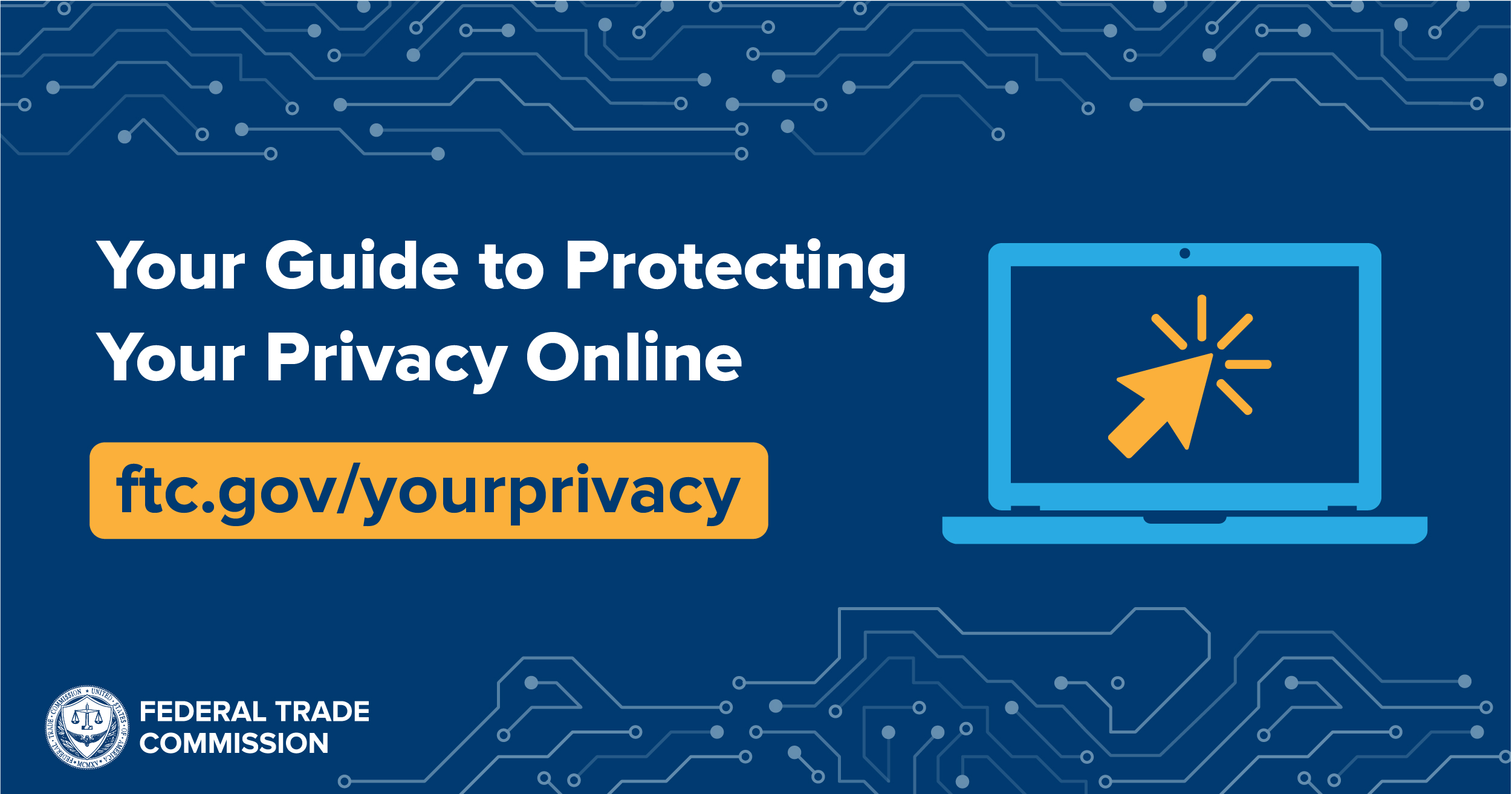Your guide to protecting your privacy online
The things we do throughout the course of our day give businesses access to information about our habits, tastes, and activities. Some might use it to deliver targeted ads to you, or to give you content based on your location, like stores nearby or the weather forecast. Others might sell or share that information.
Whether you use a computer, tablet, or mobile phone to go online, there are things you can do to protect your privacy. Check out ftc.gov/yourprivacy, your guide to protecting your privacy online. Here’s what it covers:
Online Tracking
Learn how online tracking works and what you can do about it. Plus:
- How to change your privacy settings on your browser, your internet-connected TV, and your phone
- How to opt out of target ads
- What to know about ad blockers
- How to opt out of data broker sites that sell your personal information
- What to know about privacy and mobile apps
How To Secure Your Devices
Find out how to secure your internet-connected devices, starting with your router — it’s the key to privacy at home and in your small business. Plus:
- How to know when your voice assistant is listening and ways to protect your privacy
- Important security features for smartwatches
- Using internet-connected (IP) cameras safely
- Why it’s important to remove your personal data before you sell your car
- What to do if you’re selling a home and leaving behind a smart thermostat, refrigerator, or other device
What To Know About Online Abuse and Harassment
Did you know some apps let people track you through your phone without your permission? Learn about stalking apps, how to tell if there is one on your phone, and what to do if there is.
If someone took or shared an intimate image of you without your consent, that’s considered non-consensual pornography. And that’s not OK. If that’s happened to you or someone you know, learn what steps you can take.

